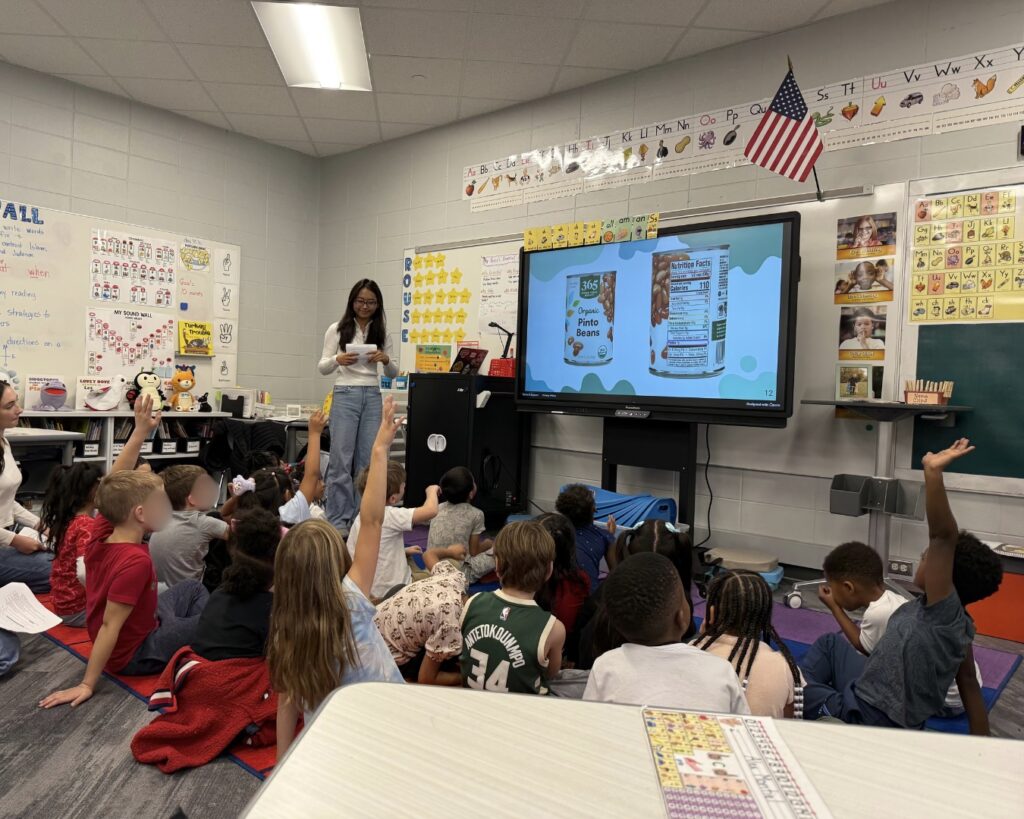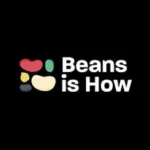Our Journey
Operating in the Amasaman community in Accra, Ghana, our accelerator program is currently on-going and incubating two schools: Graceham Academy and Jinel Academy. Our approach involves classroom-based activities supplemented with practical engagement, particularly in the realms of plastic and food system education.
For our plastic program, we team up with BreakFreeFromPlastic to integrate a plastic education curriculum into the traditional Ghanaian education curriculum & support partner schools to achieve a plastic-free status by eliminating single-use plastics within school premises while replacing them with sustainable alternatives including water dispensers and reusable bottles for all. And with our school food system program, we promote real food system education and- just like our plastic education- our core aim is to have food system education integrated into the national education curriculum for students.
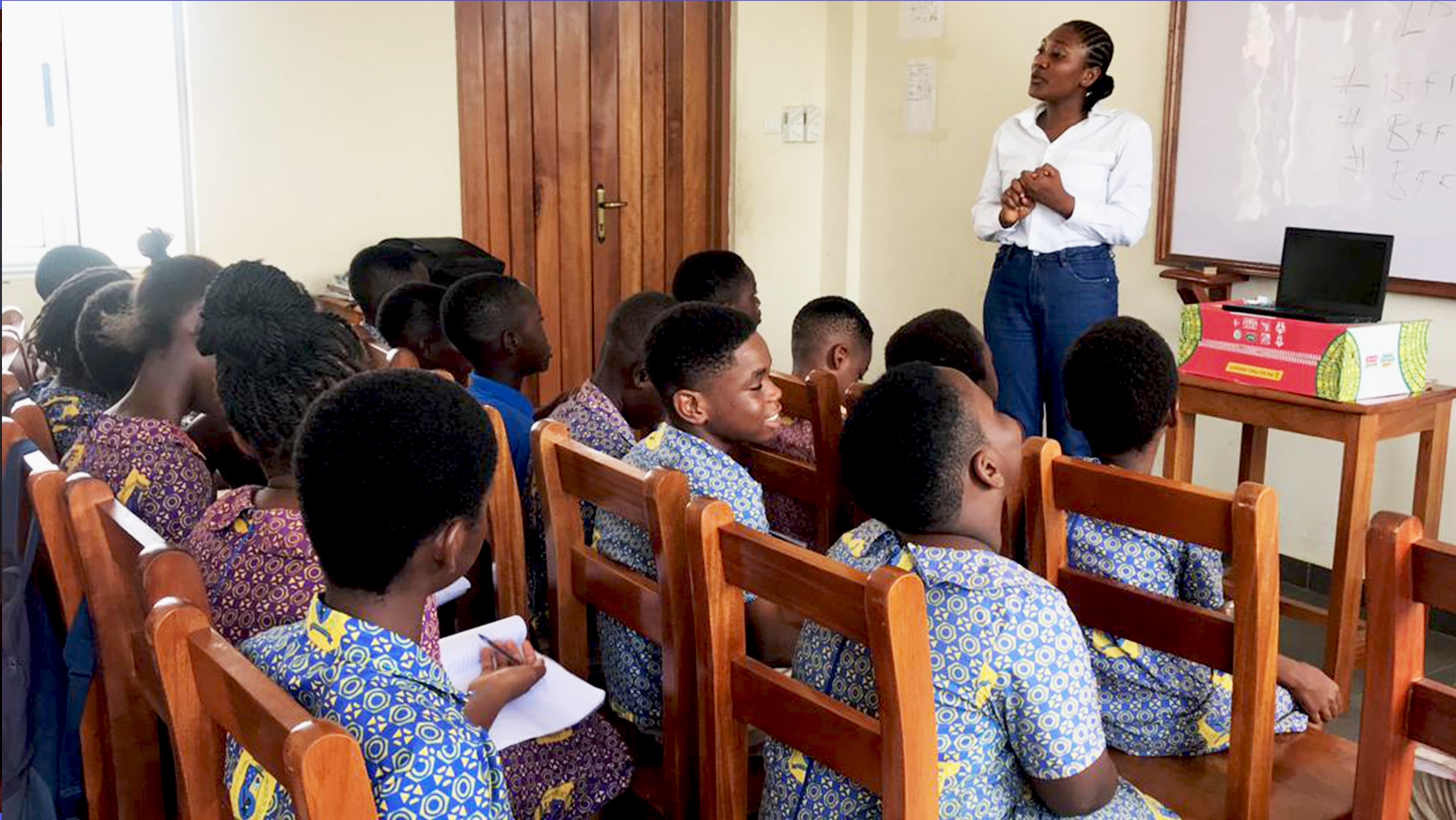
Beans Is How: Aligning with e4aa Objectives:
The heart of our school food system program lies in a powerful collaboration with the #BeansisHow campaign. We believe in the potential of beans not just as a nutritious and sustainable food source but as a bedrock for fixing local food systems.
A core objective of #BeansisHow is to increase global bean consumption by 2028. We therefore position our food system program to translate this objective into local action, particularly through schools in Ghana. Pragmatically, we have been successful in working with school managements of our partner schools to redesign school timetables to include lessons on food system education for children, enabling us the pathway to advance bean education to school children.
More so, educational toolkits from #BeansisHow have been resourceful to our bean education activities: bean quiz and bean art competition.
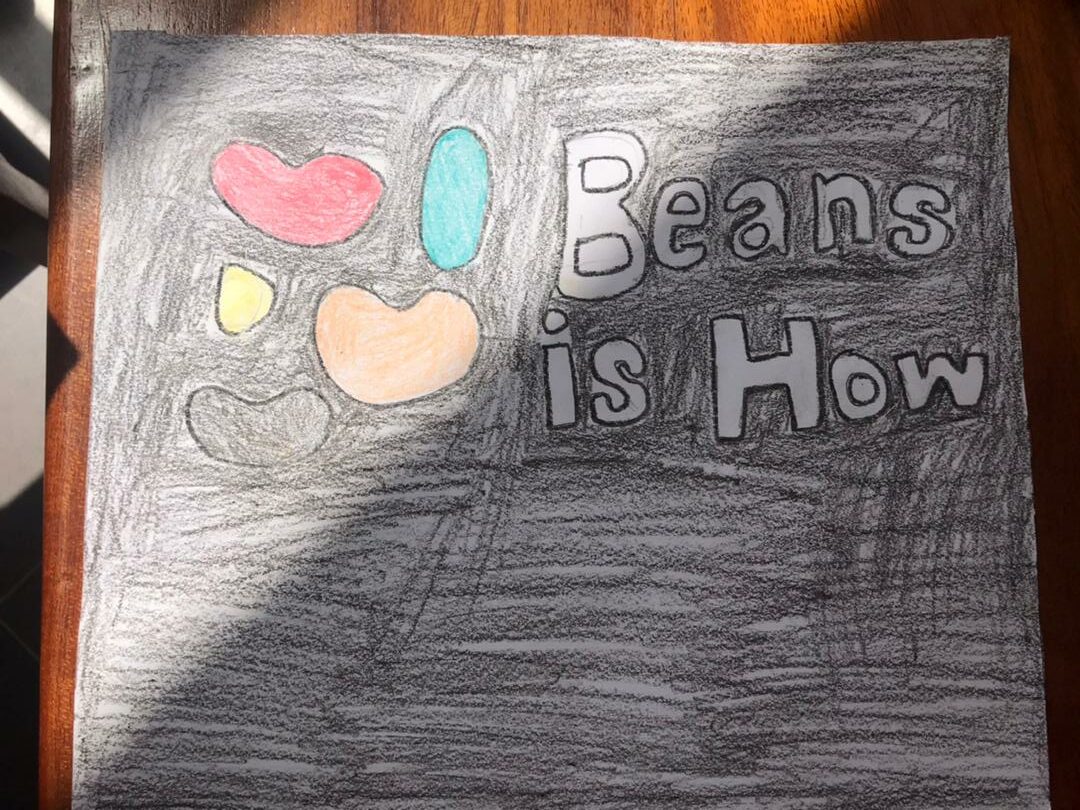
True Local Action
Localising food system education is crucial as this makes children appreciate and understand food systems. In this regard, we leverage on community-based partnership with local food systems heroes, such as market women. Here, children directly engage with market women who possess local insights and knowledge in the domain of food systems.
And as part of our bean education week, school children had the opportunity to engage with market women who sell pulses. This school-community partnership helps to soften classroom walls, allowing children to be exposed to the outside world and this form of collaboration earned our program a recognition at the 2023 World Food Forum Global Education Fair.

School Menu Transformation: #Beansonthemenu!
Children are forming lifelong eating habits and it is time we take advantage of this window of opportunity. In this vein, we work closely with school cooks to redesign and transform school menus to include healthy and sustainable food options.
For example, our partner schools have redesigned their school menu to include bean-based meals (Beans and plantain popularly known as Gob3 and a special rice and bean meal popularly known as Waakye) at most twice a week.
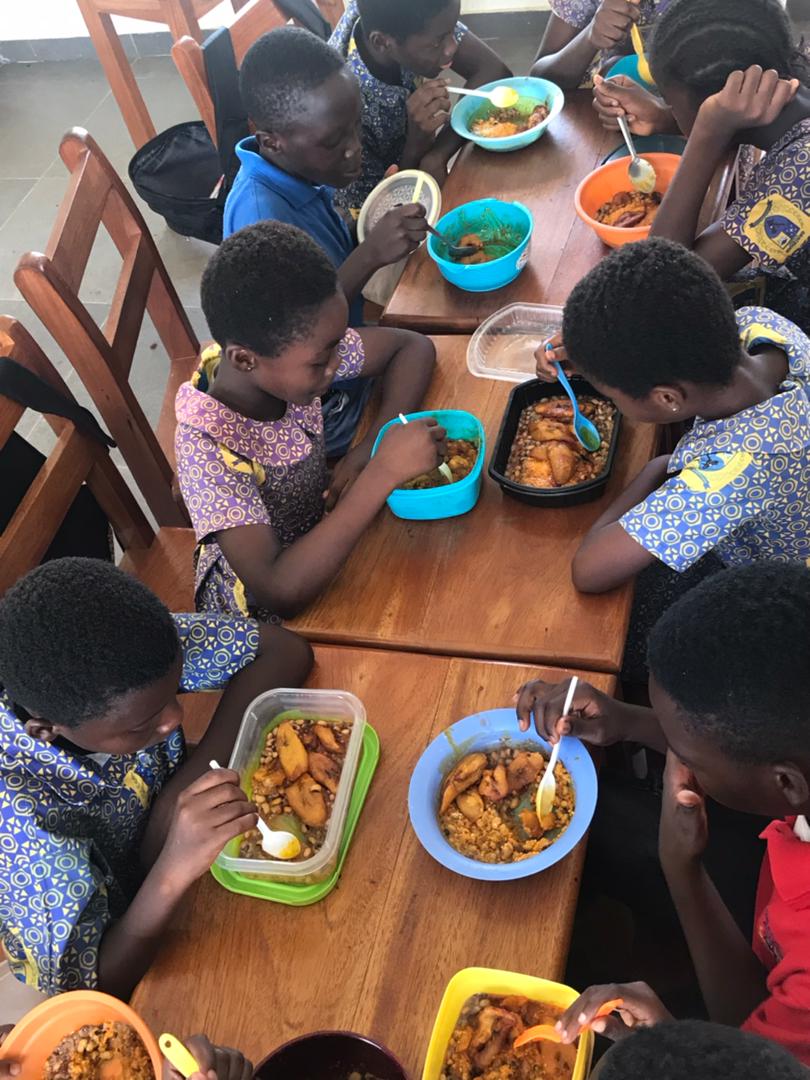
Voices from the Field
Sherita, our Program Coordinator, shares, “Translating the #BeansisHow’s objective into our food system program has been an eye-opener. It’s a chance to expose children to plant-based proteins and celebrate Ghanaian bean-based meals like Gob3, which is popularly tagged as a lifesaver food.
Call to Action: Championing Adaptation through Beans
As we witness the positive transformations in schools and communities, there’s an urgent call to action. e4aa invites all education innovators and food system advocates to join #Beansishow campaign to increase bean consumption through schools and local communities. Let’s inspire more children to eat beans, parents to cook beans, and farmers to grow more beans. It’s not just about a nutritious meal; it’s about sowing the seeds of a sustainable future- one bean at a time.
By Jeffrey Opoku SDG practitioner from Ghana and founder of Education 4 Adaptation Accelerator
*Disclaimer: The “Beans-is-How” Coalition is a committed and inclusive community dedicated to actions that contribute to doubling bean-consumption by 2028. The views, opinions and actions expressed by Coalition partners are their own and will not always represent all of Beans is How. Partner features show the diversity of our coalition, we remain a community-driven campaign.

